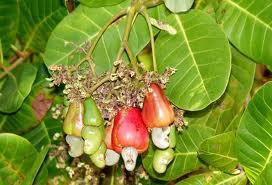 File photo
File photo
Mr Fredric Alipui, a Policy Advisor at the Ministry of Trade and Industry, has called for the establishment of an Economic Community for West African State (ECOWAS) Cashew Market to make the crop competitive in the sub-region.
He said it was time neighbouring countries collaborated through intra-continental trade to make use of the excess cashew produced.
Mr Alipui was addressing the third edition of the African Cashew Initiative, now Competitive Cashew Initiative (ComCashew) Master Training Programme in Ho, Volta Region.
The international training programme, with assistance from the German Government, FairMatch Support and other agencies, attracted participants from 12 African countries. It was aimed at promoting cashew-value-chain in Africa.
It was on the theme, “Cashew Value Chain Concept; the dynamics of the cashew market and the development of training materials.”
Mr Alipui said the continuous closure of borders to sister nations was contrary to the motives of AU and challenged players in the sector to think about cashew in the “regional dimension”.
He said the AU was working on a Continental Free Trade Area and urged cashew stakeholders to take advantage of initiative to create a central market for the crop.
Dr. Obafemi Oyewole, the Managing Director of the African Cashew Alliance (ACA), said the call for an ECOWAS Cashew Market was timely to help create jobs and empower farmers and producers.
He said such a regional market would enhance intra-regional trade and pledged the readiness of the Alliance to support and explore opportunities for the establishment of the market.
Dr. Oyewole said the capacity building programme was helping to build a pool of professionals to improve the cashew-value-chain and meet growing global demand.
Mr Samuel Kofi Larbi, the Volta Regional Director of the Ministry of Food and Agriculture, described Ghana as the country with the highest cashew productivity in the sub-region, with more than 700 kilogrammes yield per hectare.
He said the cashew sector was building on that expertise to expand knowledge and skills to support other cashew producing African countries.
Mr Larbi said, for instance Ghana, with support from the Green Innovation Centres, a GIZ project, was supplying 13,000 scions from high yielding cashew trees to farmers in Togo to boost their local cashew production.
He said the “Master Training Programme” was a crucial “next step” in the intense collaborative efforts towards knowledge and skills sharing among stakeholders in the sector, on the Sub-region.
Mr Seth Osei-Akoto, a Deputy Director, Cashew Desk, MOFA, said Ghana served as a role model in cashew research and the development of improved planting materials in the Sub-region.
Madam Helen Adjoa Ntoso, the Volta Regional Minister, said cashew production contributed significantly to poverty reduction and underscored the need for the growth of cashew industries in Ghana.
Madam Rita Weidinger, the Executive Director, ComCashew, said Ghana had shown the way of increasing cashew production from 7,000 tonnes in 2003 to 70,000 tonnes in 2015.
She expressed her optimism that the training programme would help address the gaps in the industry with a pool of experts with in-depth knowledge in the cashew value chain.
The one-week training includes field visits and practical sessions.
Cote d’Ivoire is the world’s leading producer of cashew with 700,000 metric tonnes a year, 10 times that of Ghana’s production.
Africa produces 50 per cent of the world’s cashew with 1.2 million tonnes annually.
The sector is said to support about 5.2 million jobs in direct and indirect employment on cashew farms, seasonal workers and women in cashew processing factories.